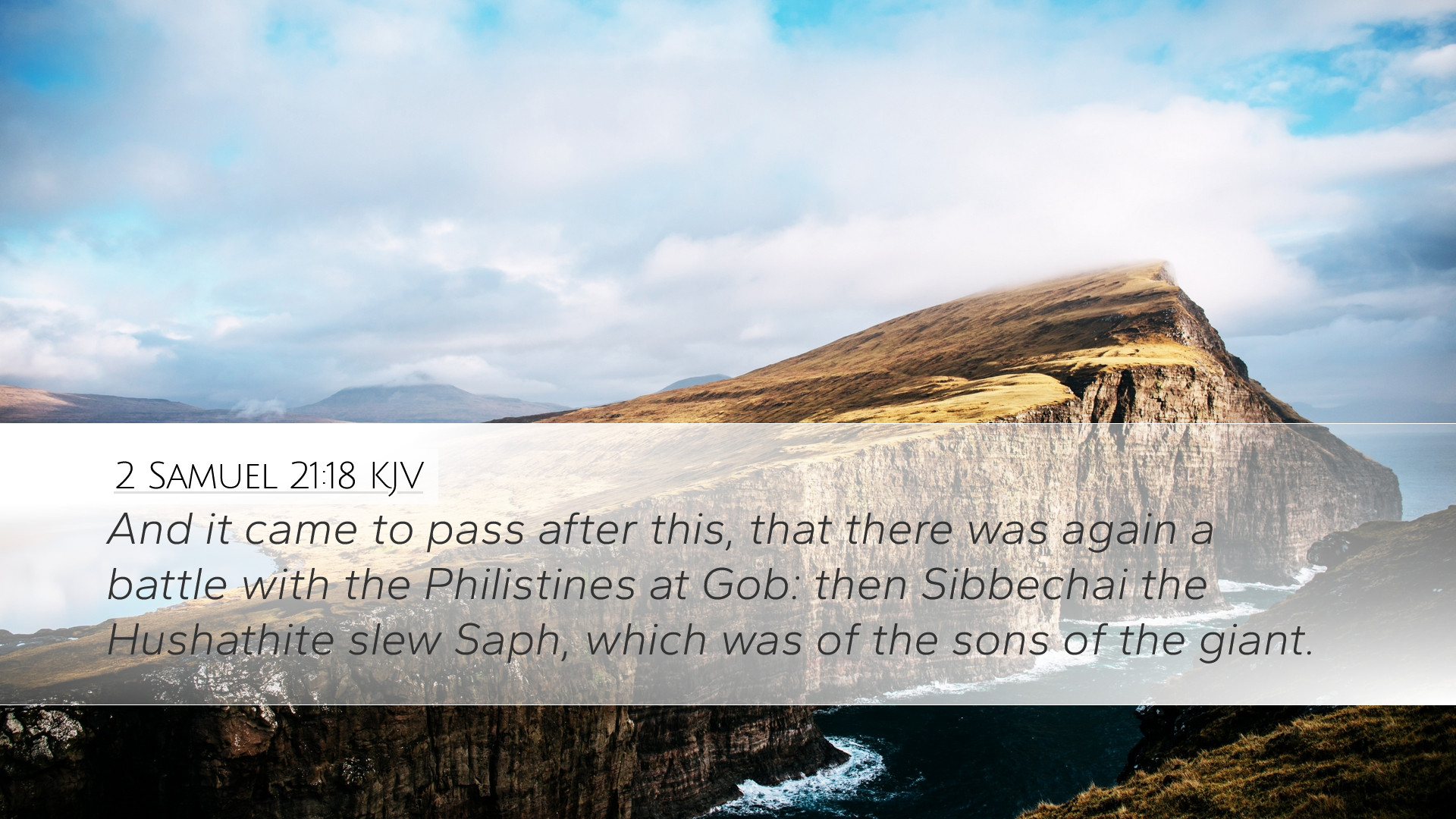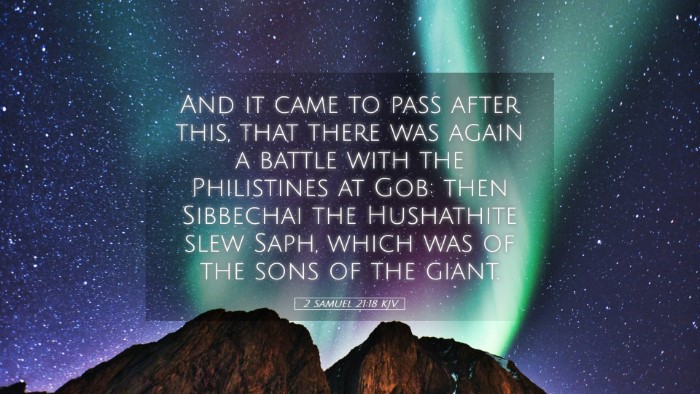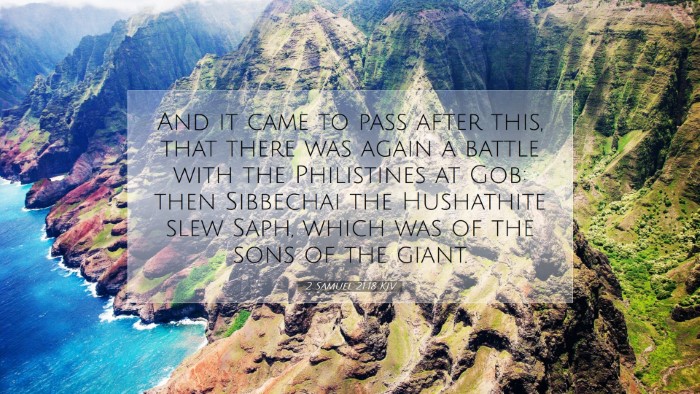Commentary on 2 Samuel 21:18
Verse Reference: 2 Samuel 21:18 - "And it came to pass after this, that there was again a battle with the Philistines at Gob: then Sibbechai the Hushathite slew Saph, which was of the sons of the giant."
Contextual Overview
The context of this verse is crucial for a comprehensive understanding. In the broader narrative of 2 Samuel, we find a series of battles between David's forces and the Philistines, which are manifestations of the ongoing conflict that characterizes Israel's history. These battles are not merely historical accounts; they serve to illustrate the struggle between God's chosen people and their enemies.
Exegesis of Key Themes
-
The Continuation of Conflict
This verse captures the ongoing nature of the conflict between the Israelites and the Philistines. As noted by Matthew Henry, the wars against the Philistines were persistent and often escalated over time. This reminds us that spiritual battles in the life of a believer are often continuous, reflecting the reality of fallen humanity.
-
The Role of the Special Warrior
Sibbechai the Hushathite is introduced here as a noteworthy figure. Adam Clarke emphasizes that this character arises from relative obscurity to perform a significant act of valor by slaying Saph, noted as a descendant of the giants. This act illustrates the idea that God can use anyone, regardless of their past or social standing, to accomplish great feats for His glory.
-
Theological Implications of Giants
The mention of "sons of the giant" refers to a lineage often symbolizing wickedness and formidable opposition. Albert Barnes explains that this lineage possesses physical might that symbolizes the trials and tribulations believers face. Saph, as a giant, represents the massive challenges that can seem insurmountable to God’s people. Yet, as the verse shows, God's warriors can overcome these challenges through His strength.
-
The Courage of David’s Mighty Men
The valor displayed by Sibbechai reflects the courage endemic to David's mighty men. Their strength lies not merely in physical prowess, but in their loyalty and commitment to God's deliverance of Israel. This passage inspires believers to realize the importance of standing in the face of adversity with a heart committed to God’s cause.
Practical Applications
-
Endurance in Spiritual Warfare
Just as David's men repeatedly engaged the Philistines, Christians are called to persist in spiritual warfare. This verse serves as a reminder that we are to remain vigilant and steadfast (Ephesians 6:10-18). The battles we fight may take various forms—temptation, doubt, or persecution—but like Sibbechai, we are assured of victory through reliance on God.
-
God's Empowerment for Service
The achievements of Sibbechai serve as an example of how God empowers ordinary individuals for extraordinary tasks. Pastors and church leaders should encourage their congregants that each person has a unique role to play in the kingdom of God and that empowerment comes from faith and obedience. This verse exemplifies the transformative power of faith in action.
-
Recognizing Our Giants
The giants in our lives—issues such as despair, fear, or sin—can intimidate us. This scripture challenges believers to confront their own "giants" with confidence, recognizing that through faith and God’s strength, these challenges can indeed be overcome. Sibbechai’s victory stands as a testament to God working through those who are faithful.
Conclusion
In 2 Samuel 21:18, we encounter themes of persistent conflict, divine empowerment, and the call to courage in the face of overwhelming odds. As we meditate on this passage, let us be reminded of the faithfulness of God, who equips us to face challenges in life and ministry. The narrative of Sibbechai and his victory over Saph encourages believers that with God, no giant is too great to overcome.


